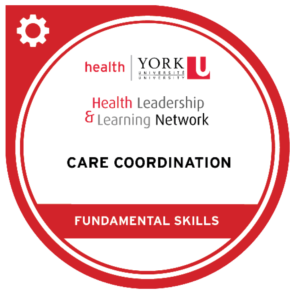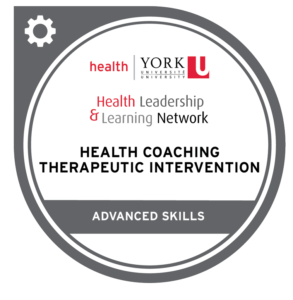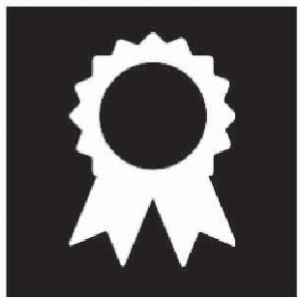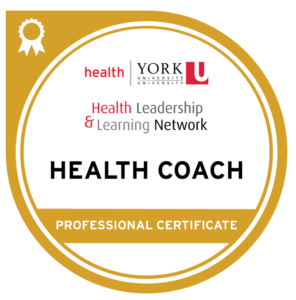What Digital Credentials Represent at HLLN:
There are two types of achievements represented in our digital credentials: (1) Skill and (2) Professional Certificate
 |
The ‘Skill’ achievement validates professional competencies through the completion of measured and validated learning. This includes the completion of an assessment with a satisfactory standing. Skill digital credentials can be stacked along a learning pathway towards a professional certificate.
There are two Mastery Levels represented in the ‘Skill’ achievements digital credentials: The Fundamental Mastery Level and the Advanced Mastery Level. |
| Fundamental: The fundamental level is represented by the colour red and maps onto three or more of following standards* within the context of the named competency.

|
- Demonstrates a broad range of cognitive and practical skills, which facilitate autonomous preparation for performing tasks and problem solving, identifying and using relevant methods and skills to complete tasks and to address well-defined problems having a measure of complexity.
- Evaluates results in accordance with criteria which are largely pre-stipulated, provides simple reporting of methods and results.
- Demonstrates strong interpersonal abilities required in learning and in the workplace, and the ability to:
- articulate processes and results,
- share and receive specialized knowledge when required and
- demonstrate and explain skills to others
- Learns and works in complex and heterogeneous groups.
- Helps shape the work within a group in a learning or working environment.
- Presents clear, timely and relevant information on processes and results to the appropriate recipients
|
| Advanced: The advanced level is represented by the colour grey and maps onto three or more of following standards* within the context of the named competency.

|
- Demonstrates an extended, broad range of specialized cognitive and practical skills.
- Identifies and frames complex problems in selected areas of study and work, and distinguishes among ideas, concepts, theories or practical approaches to solve those problems.
- Plans work processes across learning and work areas. Evaluates such processes, comprehensively considering alternatives and their potential impacts.
- Demonstrates advanced interpersonal abilities required in learning and in the workplace, in particular the ability to communicate effectively about solutions to complex problems when the subject matter may be moderately sensitive, controversial or likely to be questioned or challenged.
- Demonstrates advanced interpersonal abilities required in learning and in the workplace, including the ability to present complex facts and circumstances and to communicate about solutions in a manner that is contextually appropriate to cross-disciplinary audiences
- Plans and structures work processes in a collaborative manner, including within heterogeneous groups.
- Acts in an anticipatory manner while considering the interests and requirements of others.
- Evaluates the potential consequences for work processes within teams, instructs others and provides well-founded learning guidance.
- Assists in shaping the work in a group according to the learning or work environment of such a group while offering ongoing support
|
|
 |
The ‘Professional Certificate’ represents a milestone digital credential that is earned through the completion of a series of measured and validated learning. An individual summative assessment must also be completed at the end of the learning pathway with a satisfactory standing. Professional Certificates may also be industry-recognized or validated where applicable.
There is one Mastery Level represented in the ‘Professional Certificate’ achievement digital credentials: Professional Mastery Level |
| Professional: The professional level is represented by the colour gold and maps onto three or more of following standards* within the context of the named competency.

|
- Demonstrates and applies a comprehensive range of methods for processing complex tasks and problems within a scientific subject, field of study or field of professional activity.
- Differentiates and evaluates theories and approaches to selected complex problems within the chosen field of study or professional activity.
- Takes responsibility while working in expert teams and shows responsibility in leading groups or organizations.
- Instructs the professional development of others and acts in an anticipatory manner to address problems within teams.
- Demonstrates advanced interpersonal abilities required in learning and in the workplace, including the ability to comprehensively and clearly communicate about methods, technologies, knowledge and ideas. This includes the ability to present arguments and solutions to complex problems, even when subject matter is highly complex, unfamiliar or technical.
- Demonstrates the ability to build consensus and apply negotiating practices in a group or interactive environment.
- Demonstrates advanced competencies for the processing of comprehensive tasks assigned within a complex and specialized field of study or occupational activity subject to change. This requires the ability to select and apply appropriate theoretical knowledge and practical skills to perform technical tasks in a broad range of contexts.
- Demonstrates integrated and specialized professional knowledge within a field of study or occupational activity. This includes deeper theoretical and professional knowledge, including the scope, the core theories and practices and the limitations of the field of study or field of occupational activity.
|
|
*Adapted from Lumina Foundation (2015). Connecting Credentials: Building a System for Communicating About and Connecting Diverse Credentials report.






